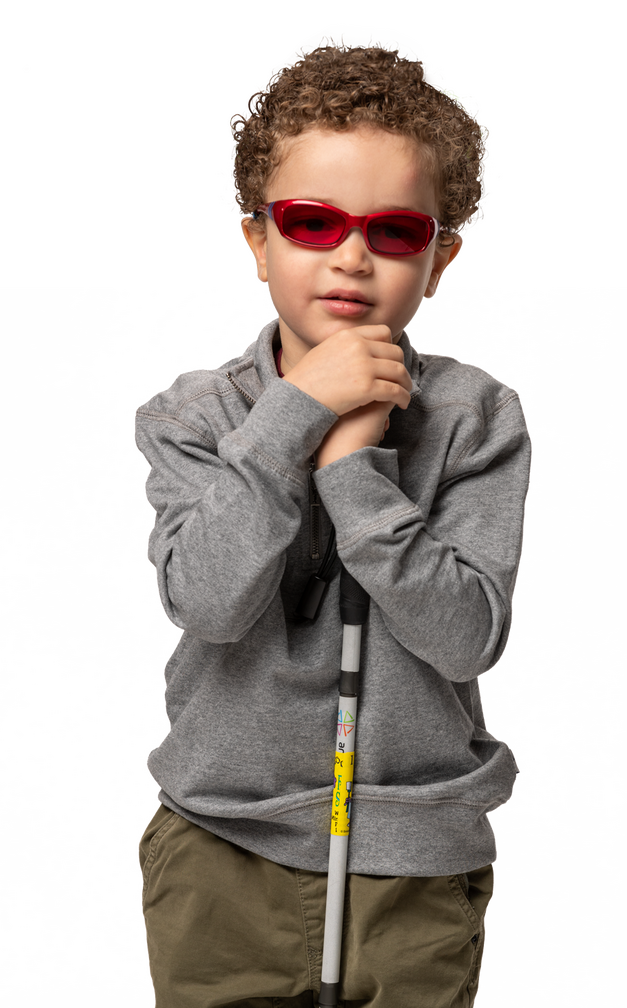Access to a trained therapist to learn fundamental early motor skills is critical in preparing children who are deafblind for a lifetime of physical activity, a recent literature review has highlighted.
The review by NextSense physiotherapist Laura Harper showed the additional benefits of physical activity for people who are deafblind included promoting language use, orientation and mobility skills, balance skills and helping with symptoms of depression and bone health, while keeping active was a recognised life strategy of people with some types of Usher Syndrome.
‘But unfortunately, the literature review also indicated that people with deafblindness are likely to have lower than recommended levels of physical activity, and that children with a genetic syndrome called CHARGE often have delayed gross motor skill development. It is important that these issues are addressed to avoid poor long-term health outcomes,’ Laura says.
‘The review indicates why access to trained therapists for preschool children who are deafblind is so important—to help them learn fundamental motor skills to prepare for a lifetime of physical activity.
‘By the same token, adults who are deafblind should be encouraged to consider the many benefits of physical activity and be provided with access to the required supports to participate, in light of this review.’
The evidence indicates:
The evidence from Laura’s literature review indicated this can be achieved by:
- early intervention settings where children with deafblindness can learn basic motor skills
- access to adapted equipment
- assistance from professionals trained to work with people who are deafblind
- inclusive recreational or social groups.
The review also indicated one-to-one care for young people with CHARGE is beneficial, resulting in greater motivation to be physically active. CHARGE syndrome is an extremely complex genetic syndrome with a known pattern of features, such as extensive medical and physical difficulties that differ from child to child, and is one of the leading causes of deafblindness in newborns.
The review highlighted the findings of several studies, showing there are additional techniques and practices that could help promote physical activity for people who are deafblind, including individualised programs, addressing any fears that may arise, specialised instruction methods, maintaining good communication during the activity and making absolutely sure that the person who is deafblind maintains autonomy and choice.
Laura shared her literature review in a poster displayed at the 2022 11th National Deafblind Conference, alongside latest research developments and service improvements in the specialised world of deafblindness.
‘The review indicates that increasing physical activity levels of people with deafblindness is complex, but it is vital for better long-term health, physical skills, mental health, as well as social outcomes, and it is absolutely achievable,’ Laura says.
It aims to give an overview of how people who are deafblind can be supported and encouraged to achieve the same age-related physical activity as other Australians, as far as possible. Studies reviewed showed that people who are deafblind face legitimate barriers to physical activity participation—many of which, with the right supports in place, can be overcome.
NextSense physiotherapists can assess the early motor skills of preschool children with CHARGE and other causes of deafblindness, teach early motor skills and support families to find activities that will motivate their child to stay physically active and participate in their community.
NextSense is a key contributor to an Able Australia research group exploring options for advancing training for professionals working with people with deafblindness.

